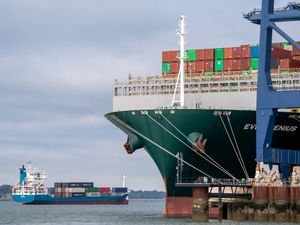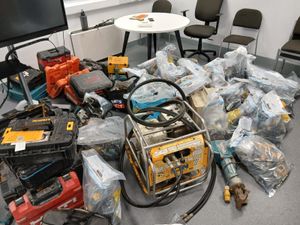Maritime T-levels could stop jobs going overseas, says shipping trade body
A lack of homegrown talent means more than half of Merchant Navy officers come from overseas, according to the Maritime Skills Commission.

More schools should offer maritime qualifications to stop shipping jobs going overseas, the industry’s trade body has said.
Maritime UK has lent its support to a campaign for new T-level maritime qualifications, saying they could help children from deprived coastal areas into skilled, well-paid jobs.
Sarah Kenny, chair of Maritime UK, said: “Developing the skills and pathways for the next generation to thrive in maritime is key to our global trade and our green future.
“Recent government-industry collaboration has moved the dial on maritime skills, but there is scope to go further and faster, providing a new world of opportunities for young people in coastal communities.”
Maritime qualifications are available in Scotland, but not in England – although some English schools incorporate maritime themes into their curriculum.
One such school is Cowes Enterprise College on the Isle of Wight, which has added maritime elements to Key Stage 3 courses.
College principal Rachel Kitley said: “Teaching maritime has given coastal students a fresh perspective on their community, making them alive to the richness of their maritime heritage and the vibrant opportunities on their doorstep.”
Maritime UK added that new T-levels could ensure that jobs in shipping, which pay 30% higher than the national average, go to British workers.
A lack of homegrown talent means more than half the 67,000 officers in the Merchant Navy and 15% of the UK’s fishing fleet come from abroad, according to the Maritime Skills Commission.
Ms Kenny said: “Tomorrow, these schoolkids can be ensuring our country’s energy security, strengthening our naval defences, be piloting AI ships, and building our new Teslas of the seas.
“As an island nation, maritime is a major part of our past, present and our future. So it’s about time our kids were given more opportunities to learn about maritime in our classrooms.”





